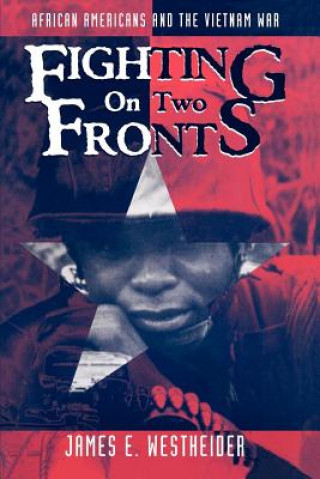
Dostava
Savjetnik za kupnju





Proizvod vam ne odgovara? Nema veze! Možete nam vratiti unutar 30 dana
 Poklon bon
u bilo kojoj vrijednosti
Poklon bon
u bilo kojoj vrijednosti
S poklon bonom ne možete pogriješiti. Za poklon bon primatelj može odabrati bilo što iz naše ponude.
Fighting on Two Fronts
 Engleski
Engleski
 273 b
273 b
30 dana za povrat kupljenih proizvoda
Moglo bi vas zanimati i


The racial tensions that have long plagued American society exist to a much lesser extent in the military where the bond of common pursuit and shared experience renders race less relevant. Or so conventional wisdom has long held. In this dramatic history of race relations during the Vietnam war, James E. Westheider illustrates how American soldiers in Vietnam grappled with many of the same racial conflicts that were tearing apart their homeland thousands of miles away. Over seven years in the making, Fighting on Two Fronts draws on interviews with dozens of Vietnam veterans--black and white--and official Pentagon documents to paint the first complete picture of the African American experience in Vietnam. Westheider reveals how preconceptions and petty misunderstandings often exacerbated racial anxieties during the conflict. Military barbers, for instance, were often inexperienced with black hair, leading black soldiers to cut each other's hair, an act perceived as separatist by their white counterparts. Similarly, black soldiers often greeted one another with a ritualized handshake, or dap, as a sign of solidarity, the unfamiliarity of which threatened many white soldiers and was a source of resentment until it was banned in 1973. Despite ample evidence of institutional racism in the armed forces, the military elite responded only when outbreaks of racial violence became disruptive enough to threaten military discipline and attract negative attention from the civilian world. A crucial addition to our understanding of Vietnam, Fighting on Two Fronts is a compelling example of the new military history at its finest.
Informacije o knjizi
 Engleski
Engleski
Kategorija




 Kako kupovati
Kako kupovati


























